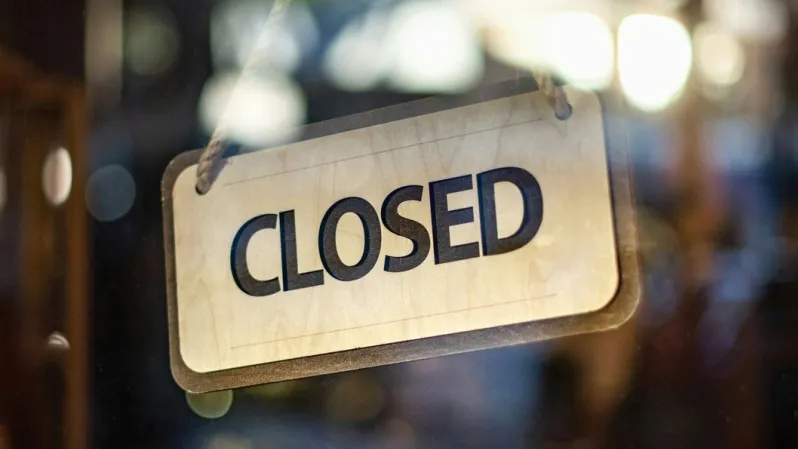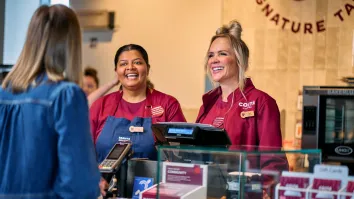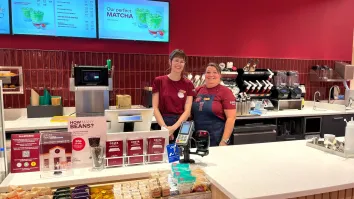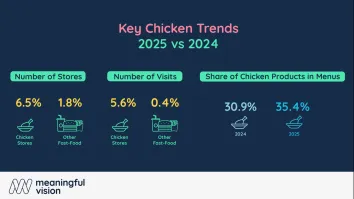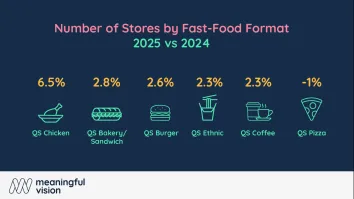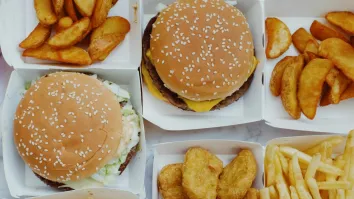
Fourth-quarter openings deliver positive signs for hospitality as Plan B restrictions set to end
Licensed premises recorded a 1.6% net increase in the last three months.
Britain’s hospitality sector grew modestly in the last quarter of 2021 as the government’s Plan B restrictions come to an end.
CGA and AlixPartners’ newest Market Recovery Monitor recorded a 1.6% increase in site numbers between September and December 2021, marking the first quarter-on-quarter growth for more than five years.
Independent venues, which have been vulnerable to closure during lockdowns and restrictions since early 2020, grew 1.8%.
The report also indicated a 1.9% increase in venues in both city centres and on high streets, where footfall has greatly suffered since the start of the pandemic.
However, Britain currently has more than 8,000 fewer pubs, bars, restaurants and other licensed venues than in March 2020—equivalent to a net loss of around 13 sites a day.
Despite fourth-quarter growth, CGA and AlixPartners stressed that the future of more hospitality businesses is “now under threat”, following after a collapse in sales over Christmas and New Year, as concerns about the Omicron variant spread and fresh restrictions were introduced in Scotland and Wales, affecting over 16,000 sites – or equivalent to 15% of the GB licensed market.
The sector also continues to face a host of operational pressures, including rapidly rising food and energy costs, staff shortages and supply problems.
“The increase in sites over the last three months of 2021 shows the remarkable resilience and entrepreneurialism of hospitality, and the enduring appeal of Britain’s pubs, bars and restaurants. But after disappointing December trading and challenges mounting, both new and established businesses are vulnerable as we begin 2022,” according to Karl Chessell, CGA’s business unit director for hospitality operators and food in EMEA.
Delivery and takeaway channels have likely played a role in the sector’s resiliency, with a separate CGA survey revealing restaurant and pub groups recording a 127% increase in sales by value from the levels of December 2019.
December’s delivery sales were 266% higher than in 2019—more than five times the growth of 47% in takeaways.
Meanwhile, a separate study from Fourth revealed that combined sales across pubs, restaurants, hotels, and quick service restaurants (QSR) were 24.4% down compared to December 2019.
Sales on New Year’s Eve were some 30% down on 2019, making December 31 only the sixth most lucrative trading occasion of the month.
Hotel and pub sales were hit the hardest, with the former experiencing a 56.5% decline across the month when compared to December 2019, whilst pubs were down by 29.2%.
Restaurants witnessed a 20.1% sales drop, but QSR – the least impacted by restrictions – saw sales decline by just 2.9%.
Looking at November, sales figures were also down 35.4% overall against the same month in 2019, pubs (-35.6%), restaurants (-29.8%), QSR (-21.2%) and hotels (-68.8%) all experiencing declines.
Return to Plan A ‘fantastic’ for hospo sector
Trade body UKHospitality heralded the government’s announcement of the return to Plan A, which will see the end of the ‘work from home’ recommendation, COVID passports and mandatory face mask wearing.
“This is fantastic news for the hospitality sector, after the critical Christmas trade was laid to waste for the second year running. Lifting the working from home recommendation is a particularly important move as it enables town and city centres, and the businesses that are their lifeblood, to begin their revival and recovery. These businesses will be eagerly looking forward to welcoming their customers back over the coming days and weeks,” CEO Kate Nicholls said in a statement.
“This signals a move to a more balanced reaction to dealing with the virus. It’s critical that the health infrastructure remains in place, such as testing capabilities. Some hospitality businesses may retain safety measures in order to keep their staff and customers safe, but the nation must avoid further restrictions in future as the virus becomes endemic,” she added, also urging the government to consider removing existing restrictions on international travel.
